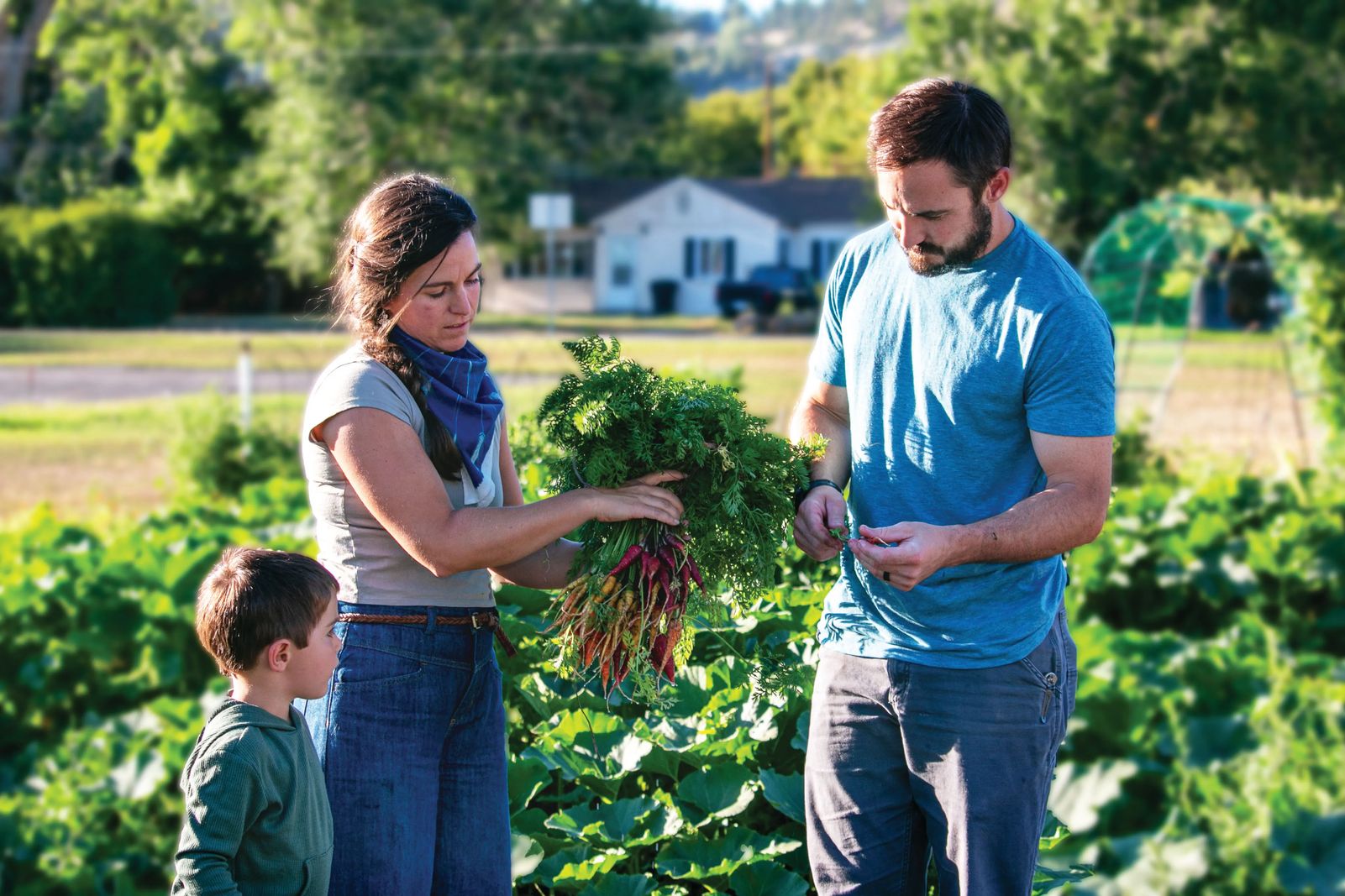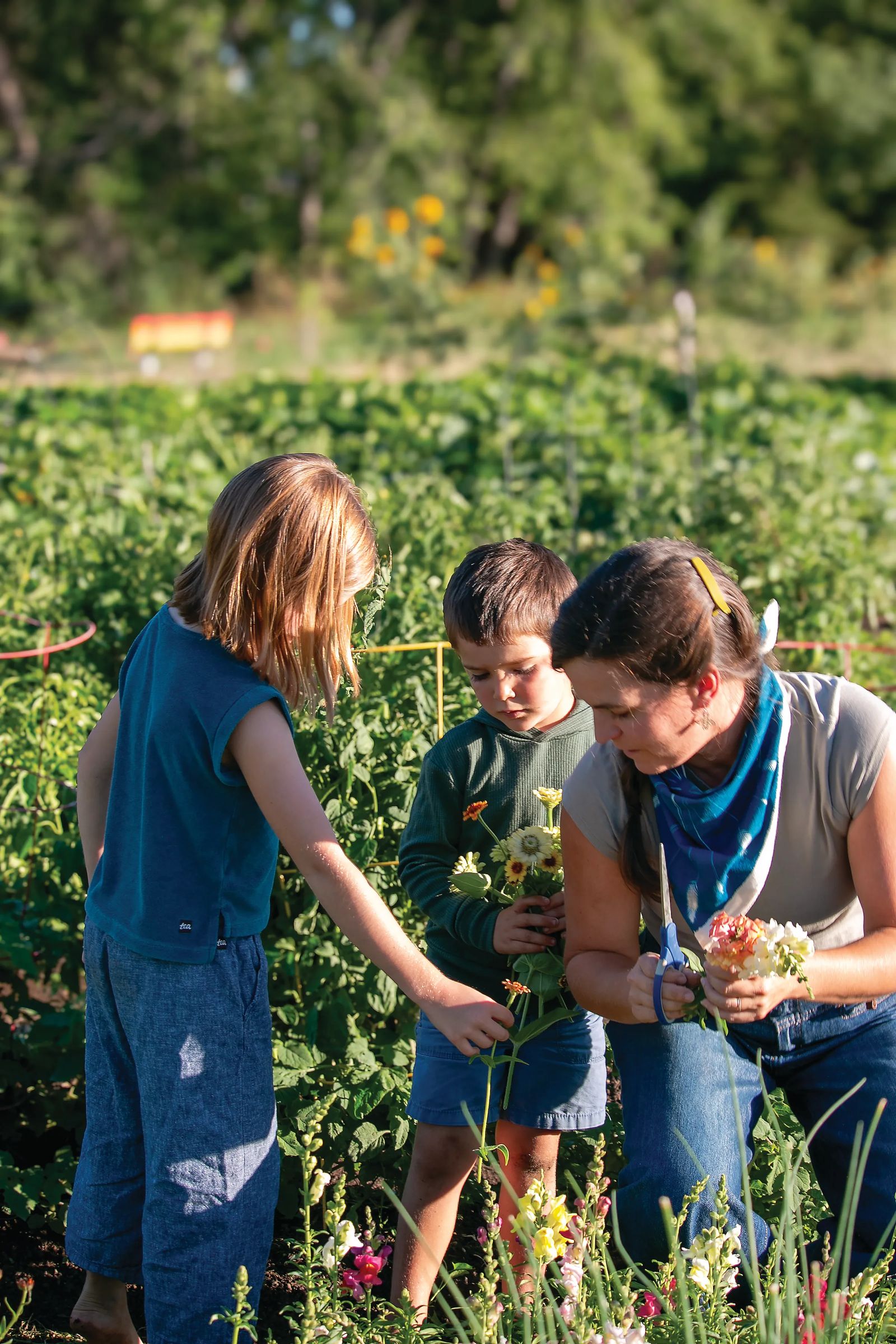
Garden Maintenance 101: Get the Kids Involved!
June 2, 2024
by Anna Rogers | Photos by Renata Haidle
“It was June, and the world smelled of roses. The sunshine was like powdered gold over the grassy hillside.” – Maud Hart Lovelace
June – you can almost smell the possibility of it! Summer is just starting, and many days of play, adventure, and vacation are on the horizon. The air is (mostly) warm, and the garden is coming alive! While it’s still early stages for many garden goodies, all the green growth is getting you excited for the harvest ahead.
It’s tempting to feel that the work is done once you get your seeds and transplants into the ground, but the work of a gardener continues as you maintain the beautiful growing space you’ve created. Let’s make it fun – and incorporate the kids!
Become Noticers
If you want to get the most out of your garden, you need to spend time noticing. Like all things in nature, there are beautiful, tiny discoveries to be made at every stage of life. Noticing when plants are thriving or struggling is key to sustaining a healthy, productive garden.
Children are excellent noticers. Take them with you to your garden space and sit together to make observations about what you see. Notice the colors of leaves, buds forming, crawlers in the soil, pollinators nearby, spacing of the plants, exposure of bare soil, and more. Spending time in your space on different days throughout the season will give you great insight into what your plants need.
Water
Are plants still looking turgid in the afternoon, or are they starting to wilt? Are some plants looking robust while others seem thirsty? Adjust your watering to meet your plants’ needs.
Spacing & Growing Habit
Are some plants getting too crowded now that they’ve grown? Are some of your plants looking unsupported? Consider trellises, cages, or stakes to help support vining or large upright plants. This allows more sun to reach all parts of the plant and increases air circulation, thus preventing disease. Growing upward also creates more space for more plants!
Plant Signals
Plans give different signs to let you know something is wrong. This could be discoloration or holes in the leaves, lack of growth, or fruit withering before it matures. You can use these signals to interpret what’s happening with water, soil health, or pest and disease problems. Sometimes, pinpointing the issues may require trial and error, but frequently observing your plants gives you vital clues to diagnose what is happening.
Bugs & Animals
Are you noticing deer or rabbit scat in your growing area? Are squirrels and birds constantly taking bites out of your veggies? Do you see helpful bugs like ladybugs, bees, earthworms, or aphid eggs on the bottoms of your leaves? Evidence of your garden’s fauna can inform your decisions. You may wish to add fencing, plant native flowers for pollinators, or remove pest-infested plants. Netting or objects that move in the wind may deter birds and squirrels.

Keep the Bad at Bay
All the noticing you’ve done together can help inform your preventative plans for keeping the bad at bay in your garden. There are many challenges to gardening in the Billings area – extreme cold, extreme heat, high winds, hailstorms, deer, rabbits, squirrels, bugs, urban air pollution, and more. The goal is to tend to healthy, vigorous plants that can withstand the challenges that come their way. You can help your plants maintain their vigor by...
Staying on top of the weeds is usually the biggest challenge in gardening and the most important thing you can do to keep things tidy, healthy, and thriving. At best, weeds compete for plants’ nutrients; at worst, they physically choke them out. Do a little at a time as frequently as you can, or the task may feel insurmountable. Bring the kids to the garden for some weeding together and use the time with busy hands for rich conversations.
- Adding helpful elements like compost tea, earthworms, or mulch to the soil to enrich it.
- Maintaining good spacing between your plants. If they are overcrowded, it’s a breeding ground for disease. Conversely, too much space exposes soil, leading to more erosion. Fill empty spaces with new plants and add mulch to the top for better water retention.
- Looking out for insect pests. Remove bad bugs as you can. To deter bad bugs, keep plants well-watered, in rich soil, and with good air circulation. A kid is probably up for the job if you need a good bug squasher!
- Providing support. Trellises, cages, and stakes keep plants from overcrowding and sitting on the ground where fruit can rot. These supports keep top-heavy plants upright and help prevent wind damage.
By involving your family in garden maintenance, you can experience a healthy, thriving garden all summer long that brings you joy, accomplishment, and delicious, nutrient-rich food to enjoy together!
Originally printed in the June 2024 issue of Simply Local Magazine
Read this article in the digital copy of Simply Local here!





